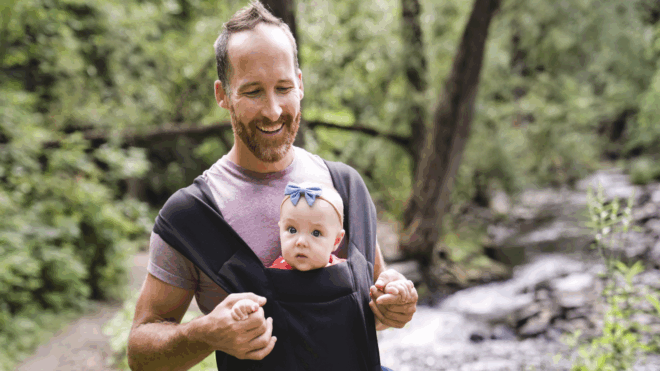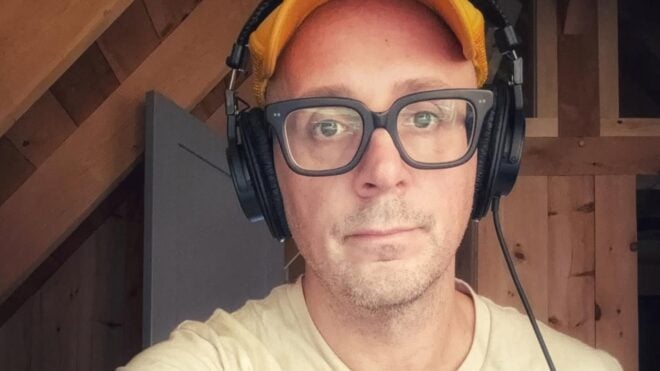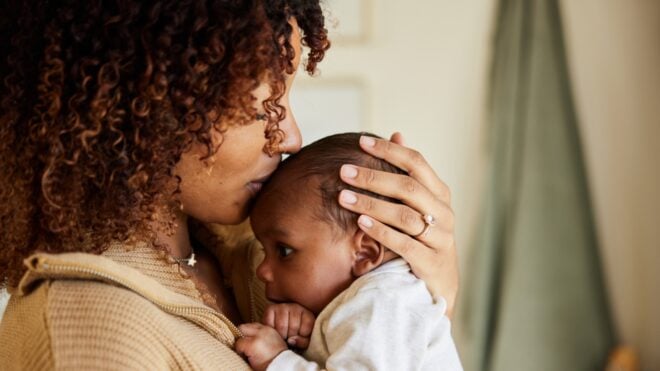
In this article:
When it comes to therapy, does it really matter what race your therapist is? For many, sitting down with someone who shares the same, or similar, racial makeup is essential.
Brittany Minor, a Black mother in Florida, only wants Black women therapists — a sentiment echoed overwhelmingly by other Black women, as well as by other people of color who desire therapists of similar races and backgrounds. The married mom of two works full-time, oversees her children’s virtual learning, and runs a Facebook group supporting Black moms in the Orlando, Florida, area. As of now, Minor is currently searching for a Black woman therapist for her daughter as well as one for herself. She, like many people during the pandemic, is choosing to be proactive about her mental health.
We began 2021 entering the second year of the COVID-19 pandemic. It’s been almost a full year since the World Health Organization (WHO) declared the coronavirus a pandemic. In that year, social distancing, quarantine, working from home, distance learning, millions of deaths (approximately half a million in the US alone), civil uprisings, and Capitol insurrections have taken a toll on people and their mental health.
Many folks searching for therapists during the pandemic — or during any time, really — may desire their therapists to exhibit and inhabit particular qualities and identities so that they feel better seen and understood. For people who belong to marginalized communities, it may be a question of safety, and of not experiencing further trauma in their journey of mental health and healing. Minor sought a very specific type of therapy with a white therapist because no Black therapists specializing in the area she hoped to focus on were accepting new patients. However, the therapist she did see came highly recommended by both a Black therapist and a Black patient, so Minor was cautiously optimistic.
The Impact of the Pandemic on Mental Health
According to an August 2020 report from the Centers for Disease Control and Prevention (CDC), more than 40% of US residents since March 2020 have reported symptoms of adverse mental and behavioral health such as suicidal ideation, anxiety, depression, and starting or increasing drug or alcohol use. This is near double the frequency recorded in previous years. The US Census Bureau reported in December 2020 that more than 42% of people they surveyed — an increase of 11% from 2019 — disclosed signs of depression or anxiety in December.
With so many people seeking help for mental health, a National Council for Behavioral Health (NCBH) survey of behavioral health CEOs in August and September 2020 reported behavioral health organizations saw a 52% increase in demands for services. In addition, the survey reported diminishing capacities, with 54% of organizations closing their programs and 65% canceling, rescheduling, or turning away patients.
When you combine the already strained capacity of mental health organizations and providers with the stark reality of a more limited percentage of non-white psychologists and psychiatrists, you can imagine how difficult it would be for a person of color to find a therapist of a similar racial background. As of 2019, 83% of psychologists in the US were white, 7% were Hispanic, 4% were Asian, 3% were Black, and 2% were unidentified non-white.
As if the pandemic wasn’t enough, 2020 brought the civil uprising and increased visibility to the Black Lives Matter movement. Forensic psychologist Dr. Nikiesha Brooks, PsyD., told Mom.com, “What we saw in the field of psychology was many minorities — particularly African Americans and Hispanic Americans — began to seek therapy, and specifically wanted it from people who look like them, who can relate to their current experience.” Dr. Brooks noted that her workload as a Black therapist doubled this past year. “There was this huge influx of requests, and particularly for Black therapists, and we are a small population,” she said.
Working mom of one Justina Sade told us she hadn’t previously used race as a criteria for a therapist until recently. “I've essentially been forced to reckon with the influence of the race and culture of the people I interact with intimately on my mental health,” she said. “Not only because of the pandemic, but because of the phase of life I am in. I am recalibrating all my interactions to serve my highest good!”
Cultural Competency and the Race of Your Therapist
When looking for a mental health professional, many people consider their financial resources, whether the therapist accepts their insurance, the professional’s expertise with a certain issue (e.g., marriage, eating disorders, parenting, etc.), and other factors like race, gender, sexual orientation, religious affiliation, or even if they have children.
One reason clients often seek therapists that are the same race as they are is because, as Los Angeles–based psychotherapist Rhonda Richards-Smith, LCSW, shared with Mom.com, “In some cases, clients have found it easier to trust mental health providers who look more like them." Many of her clients struggled to find a Black therapist, and some reported spending much of their therapeutic time fielding questions and satisfying their non-Black therapists’ curiosity versus working on their own issues.
“It feels like their therapist is gaining more from sessions than they are,” explained Richards-Smith. “With that being said, race should never be the sole factor when deciding which therapist is best for you. The effects of systemic racism are far-reaching, and some Black therapists may even perpetuate ideals that stem from these systems.”
Counselor Katherine Shorter, who is Black, broke down the labor Black folks often have to perform when with a non-Black therapist. “It can hamper the therapeutic process trying to explain our Blackness to a therapist,” she told Mom.com. “We have to position them at the starting line of a race we’ve been running our entire lives.” Having a therapist who is Black and understands Black culture contributes greatly to helping folks “work through the traumas that can be specific to a particular group of people,” Shorter continued. “It enables us to be treated while minimizing the chance of further harm.”
Activist and spiritual coach Erna Kim Hackett told Mom.com, “So much of what I’m processing is my experience as a biracial woman doing racial justice work. I don’t need to be thinking about the whiteness of my therapist while I’m trying to do my work.” Hackett doesn’t assume every woman of color therapist will be a good fit, but explained it was a starting place. “I sure as hell don’t want to experience triggers, trauma, or ignorance while in the vulnerable work of therapy."
"I don’t want to consider if the white therapist across from me has biases against me before I even open my mouth," elaborated Minor. "I only want a Black woman and preferably a Black woman who is also a mother."
White therapist Dr. Keri Turner, Psy D., practices primarily in a white and privileged community, so she hasn't had a chance to work with many people of color — something she'd like to shift. "I am regularly reflecting on my white privilege, challenging myself to explore bias, and educating myself about systemic racism and biases in our world as well as within myself," she told Mom.com. When she works with a POC or doesn't understand a particular cultural perspective or component, Dr. Turner said, "I will ask the client to help me understand how cultural experiences have looked within their family and their own life so that I can understand the client on a deeper level. For a greater contextual understanding of the particular culture, race, or ethnicity, I will use my own time outside of client sessions to learn more. If the client would like to educate me, I let them lead."
Dr. Marcie Beigel, Ed.D, BCBA-D, who is also white, explained how 20 years ago, when she was getting her masters, she rarely thought about her race and how it informed her life, perspective, and experiences. Nor did she have to take any cultural competence or sensitivity classes or realize it was missing. "I am sure there have been moments where I was less than graceful in my privilege during my practice, though I cannot recall any specific incidence," Dr. Beigel told Mom.com. "This lack of awareness comes from my privilege, because the moments I lacked grace did not impact me and that is not OK." She added that now that she knows more, she continues to learn and understand her biases, privilege, and impact.
Mirroring identities is what many people use as a shorthand for determining cultural competence — that amorphous feeling of “they get it.” It doesn’t always work though, because sharing an identity does not ensure interchangeable experiences. However, that cultural competence is usually earned either from having similar life experiences, or actively learned on the part of the therapist. Therapists — and white therapists especially — need to be mindful of their own patterns of prejudice and verbal and nonverbal interactions and expectations, and deliberately educate themselves on anti-racism and different cultures and religions.
"As a psychologist and therapist, it is critical that we have insight into my own behaviors and beliefs, and that I am able to model honesty and vulnerability," added Dr. Turner. "I believe this will help the client feel seen, heard, and validated within who their entire self and experience has been, race and cultural being critical pieces of identity."
When Dr. Beigel is working with a client where she's inclined to ask more, she asks herself, "Do I need to understand more to support them in this moment? When the answer is yes, then I will ask follow up questions. When the answer is no, then we keep moving forward in the conversation." Furthermore, when the answer is no, she makes a note to learn more on her own so that she can better understand her client.
Lisa Olsen, a mother of two, told Mom.com, “I can completely understand why a POC would want a therapist of the same race, but as a white woman, I am open to any race. I do also prefer a woman — my first was male and he was great, but still the experience was different.”
Asian American Ophelia B. divulged she thought it would matter more than it did. She needed a therapist who was LGBTQIA-affirming and didn’t make assumptions about her regarding that identity. “I’m currently seeing a therapist whose commitment to anti-racism is evident in her willingness to suspend any preconceived notions she may have about me. I don’t need her to know everything about my people,” B. told us. She mentioned how sometimes, needing to explain your cultural background and practices to a therapist can help process your own healing.
Unique Needs of Communities of Color
Part of cultural competency is recognizing how different communities of color are affected by mental illness. Many studies have demonstrated how race-related stressors can severely affect mental health. The stigma against mental illness and seeking psychological health in communities of color is real and has a profound effect on whether POCs choose to seek help or not.
Consider that in 2019, one in five people residing in the US experienced a mental illness and one in 20 people experienced a severe mental illness. But when we examine the rate at which different racial groups received treatment, there is a huge gap:
- Asian: 23.3%
- Black or African-American: 32.9%
- Hispanic or Latino: 33.9%
- Non-Hispanic mixed/multiracial: 43.0%
- Non-Hispanic white: 50.3%
Because of each community’s unique needs, therapists of color are in high demand. Jean-Arellia Tolentino, Ph.D., told us that approximately 77% to 80% of her clients or inquiries were from folks expressing interest in working with a Filipino American therapist. “This wasn't quite surprising for me given that seeking and engaging in mental health services within the Filipino community is still highly stigmatized,” said Dr. Tolentino. “Many of the clients have expressed the importance in working with a therapist who is culturally attuned and nuanced, which eliminates much of the client's work to explain or teach the therapist about their identity or culture.” As a result, Dr. Tolentino can use cultural phrases or values during sessions, allowing her to delve deeper.
“Clients have indeed sought me out due to my race because they’re so excited to find an Asian American clinician — even immigrant parents have sought me out — a bigger deal because of the taboo, especially among the immigrant population,” Jeanie Y. Chang, LMFT, CMHIMP, CCTP, told Mom.com. “Much of the mental health challenges and conditions stem from our cultural norms.”
According to Dr. Brooks, because of the unique Black experience in the US, there are some unfortunate “deep-seated issues and beliefs that we carry about ourselves,” she says. “There's a lot of shame surrounding it. Black folks only want to open up about those sorts of things to somebody who looks like them, who they feel won't judge them and will also understand the struggle of being Black in America.”
How to Find Mental Health Resources and Therapists of Color Online
For many patients, finding a therapist of color is a lot of work. But for most, feeling understood by a person of shared background is worth it. “I prefer women of color,” Deborah Cruz, a Latina mother of two, told Mom.com about the therapists she prefers to see. “I want someone who can understand where I’m coming from with the least amount of built-in bias.”
Below are a few resources and sites that may act as a starting point in your search.
Psychology Today
You can go to Psychology Today’s site and search for therapists by state. You can even specify by race like Arabic, Asian, Black, Indigenous, Latinx, and LGBTQIA.
National Queer & Trans Therapists of Color Network (NQTTCN)
This healing justice organization actively strives to remake mental health for queer and trans POC in North America. NQTTCN has a directory of queer and trans POC mental health practitioners, a fund that can help LGBTQIA POC access mental health, and provides resources.
LGBTQ Psychotherapists of Color (QTOC)
The volunteer-led group of LGBTQIA POC mental health practitioners was formed as a network and support group for POC mental health practitioners, however, they also have a directory of LGBTQIA POC mental health providers and resources for patients.
Inclusive Therapists
This group helps people of all abilities and in all bodies find therapists in a safe, simple way. They also have resources and a directory.
Therapy in Color
This is a Black, Indigenous, and POC therapist directory as well as community to help BIPOC learn and heal together.
The Shrink Space
This service helps connect college students to a Black or Indigenous therapist near their university. While it does cater to students enrolled in university, you can still scroll through their providers and search for a therapist in your area if you are not a student.
Institute for Muslim Mental Health
The mission for this group is to care for the mental health and well-being of Muslim communities and provide a director of Muslim mental health practitioners and resources for their community.




